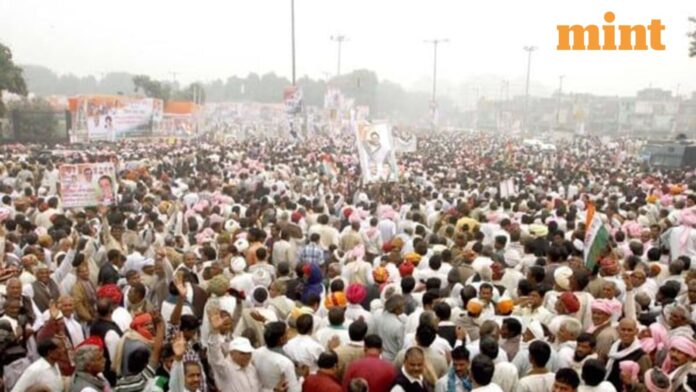President Donald Trump is remaking America’s role in the world. In his vision, the US stops underwriting global security and still delivers peace. He has pressed allies to boost their defense budgets, claimed credit for mediating conflicts in Africa and the Middle East and vowed to bring the war in Europe to a close.
Trump was dealt a tough hand. He entered office with wars underway in Gaza and Ukraine. The US share of global GDP—the basis for its geopolitical heft—is in long-term decline. The question is whether his vision amounts to a blueprint for restoring stability or extending the chaos. Eight months into his second term, there’s a tenuous peace deal in Gaza, but multiple regions have seen their fiercest clashes in decades, and the war in Ukraine continues.
Our base case is that US retrenchment removes the guardrails that have constrained conflict, heightening the risk of regional wars. In a nightmare scenario, it could set the stage for a great-power showdown.
Trump dislikes foreign entanglements. In his view, wars abroad have left the US military overstretched. His answer has been to push allies in Europe and Asia to shoulder more of the burden for their own defense, scale back US assistance to Ukraine and avoid US military involvement in foreign conflicts.
There are exceptions: Latin America, which Trump regards as the US’s sphere of influence and where he has stepped up military activity, and Iran, where he ordered strikes on nuclear facilities earlier this year.
Trump has also called on others to stop fighting. He’s pushed for an end to Russia’s war in Ukraine, though he has stopped short of using the full weight of US power to achieve that goal. When foreign hostilities erupt, he’s been quick to urge de-escalation, often with the threat of tariffs.
Trump’s wager is that a more focused US military, and allies investing more in their own defense, will strengthen deterrence. His argument has merit: Decades of costly wars and allied dependence on US security commitments have strained the armed forces and diverted resources from priorities like China. Allies’ underinvestment has left collective defenses vulnerable.
If Trump’s gamble pays off, the implications for the global economy are positive. Less fighting means fewer shocks to markets and disruptions to supply chains. Higher defense spending gives gross domestic product a lift—though at the cost of swelling public debt and higher borrowing costs. The big winner would be the US, which could enjoy a cheaper version of the Pax Americana, with the cost of paying for global security shared more broadly.
Still, it’s a risky bet, and one we think is unlikely to pay off.
Our base case is that US retrenchment will only open the door to more conflict.
The US plays a major role in tackling transnational threats, such as piracy and terrorism, and may leave behind a vacuum thatother countries are unable or unwilling to fill. Boosting defense budgets is slow and politically fraught. Turning that money intocapability takes years not months. And tariffs, Trump’s preferred stick, don’t deter every country—especially those less dependenton the US market.
The likely outcome: a world with fewer barriers to war. Rivals such as India and Pakistan or Israel and Iran will clash more often.Weaker or smaller states risk being preyed upon by stronger neighbors. China, Russia and the US will only push harder to dominatetheir spheres of influence, while regions with several competing powers may turn into battlegrounds for dominance.
This scenario may already be unfolding. In the first eight months of Trump’s second term, Thailand and Cambodia, India and Pakistan, and Israel and Iran all engaged in their fiercest clashes in decades—as Europe’s largest land war since World War II grinds on.
More conflict means more shocks. That means more moments when Treasuries, the dollar, the yen and defense stocks rally, while equities exposed to conflict zones suffer. Supply chains are especially vulnerable where they cross contested regions, such as the production of semiconductors in Asia and oil from the Middle East. Swelling military budgets mean higher debt burdens and borrowing costs. We estimate Europe alone needs to spend $2.3 trillion over the next decade to meet NATO’s new targets.
These shocks would be felt worldwide, but most sharply in regions marked by fierce rivalries , in fragile states open to exploitation , and in neighborhoods where regional hegemons press their advantage.
The most dangerous potential outcome: a clash between the world’s great powers. History suggests that great-power wars are most likely during moments of transition—see Napoleonic Europe and World Wars I and II.
Retrenchment could embolden rivals to test states once protected by US guarantees. Russia may view NATO’s eastern flank as exposed. The US commitment to Taiwan has always been ambiguous by design, and China may decide to explore the limits.
The economic fallout from a great-power conflict would be staggering: markets in turmoil, supply chains fractured, trade routes severed and capital stock destroyed on a massive scale.
• A Russian invasion of the Baltics could wipe $1.5 trillion off world GDP in the first year alone.• A conflict between North and South Korea could exceed more than $4 trillion in global GDP losses.• War between the US and China over Taiwan could cost the global economy $10 trillion as the world’s single supplier of advanced semiconductors would be taken offline.
The good news: a great-power war remains unlikely. The staggering costs of conflict—from the economic devastation to nuclear catastrophe—have historically been a powerful constraint on escalation among major powers.
Trump’s vision is that allies spend more so that wars never come. It’s a gamble on burden-sharing without bloodshed. If it fails, the fallout would be significant.
This article was generated from an automated news agency feed without modifications to text.
Trump, US military, global security, defense budgets, war in Ukraine
#Trumps #Retreat #Worlds #Top #Cop #Opens #Door #Regional #Strife

